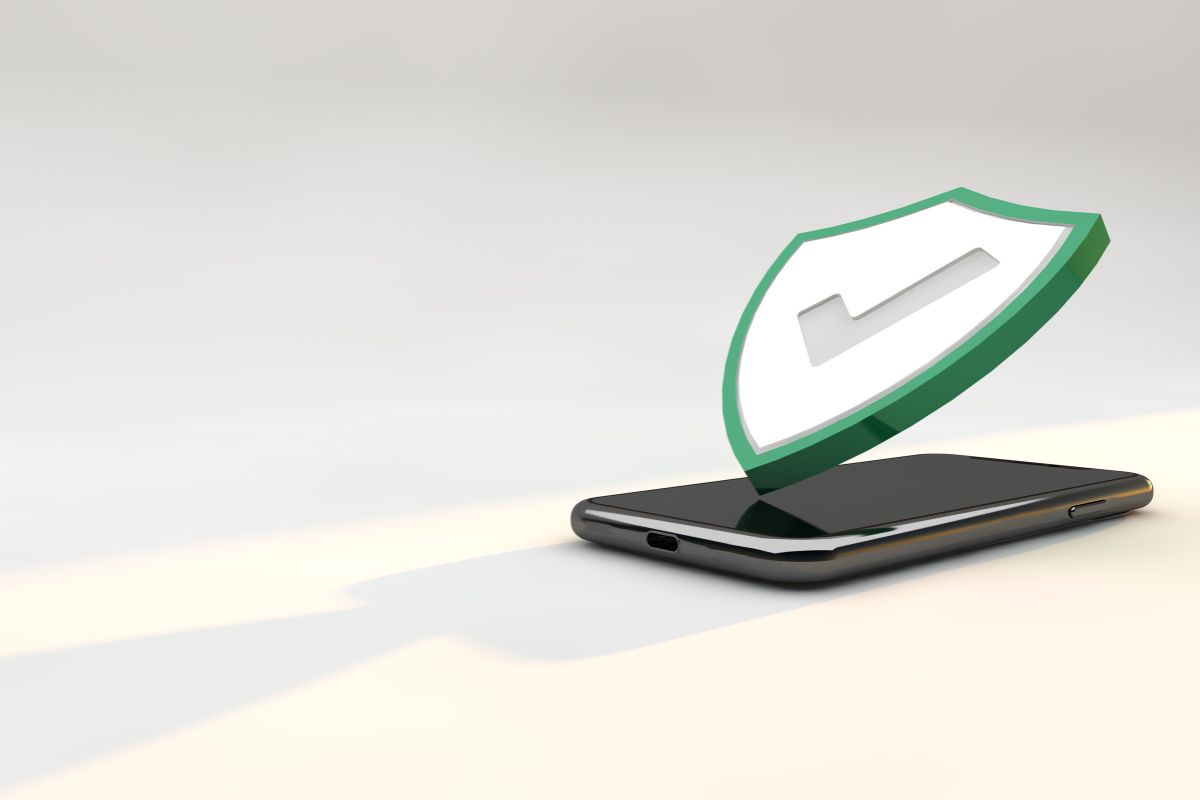Phone Security 101: How to Safeguard Your Device from Hacks

With the rapid advancement of technology and the increasing reliance on smartphones for various aspects of daily life, it is crucial to address the issue of phone hacking. The pervasiveness of cyber threats poses a significant risk to individuals’ privacy and security in an increasingly interconnected world. Therefore, understanding how to protect our phones from being hacked becomes paramount. This article aims to explore effective ways to prevent phone hacking, providing readers with valuable insights into safeguarding their personal information.
In today’s digital landscape, where sensitive data such as financial information, personal emails, and social media accounts are stored within the confines of our smartphones, hackers have become more sophisticated than ever before. Cybercriminals exploit vulnerabilities in smartphone operating systems or applications while employing various techniques like phishing scams or malware installation to access users’ private data illicitly. Consequently, it is essential for smartphone users to adopt comprehensive protective measures that can counteract these potential breaches and prevent unauthorized access.
While technological advancements continue to enhance mobile devices’ security features, there remains a pressing need for individual responsibility when it comes to protecting personal information from malicious attacks. By implementing specific strategies and habits, smartphone users can significantly reduce the chances of falling victim to hacking attempts. Taking proactive steps such as using strong passcodes, regularly updating software, avoiding suspicious links or downloads, and encrypting communication channels can fortify one’s defense against potential breaches effectively.
By adhering to best practices outlined in this article, readers will gain practical knowledge on securing their smartphones from hacking attempts.As the threat landscape continues evolving alongside emerging technologies,it is imperative that individuals remain vigilant regarding their device security.While no method can guarantee absolute protection,following these guidelines will undoubtedly contribute towards minimizing vulnerability,enabling users to navigate their digital lives securely
Enable Two-Factor Authentication
To safeguard one’s phone from hacking threats, enabling two-factor authentication is an essential step. This security measure adds an extra layer of protection by requiring users to provide not only a password but also a second form of verification, such as a fingerprint scan or a unique code sent to their registered email or phone number. By incorporating this additional authentication factor, individuals can significantly reduce the risk of unauthorized access and potential data breaches.
Enabling two-factor authentication serves as a robust defense against hacking attempts due to its multifaceted nature. It acts as a digital lock that demands both something known (a password) and something possessed (a physical characteristic or device). The combination of these two elements strengthens the overall security framework, making it considerably more difficult for hackers to infiltrate personal accounts and gain control over sensitive information. As cybercriminals become increasingly sophisticated in their techniques, adopting measures like two-factor authentication becomes imperative to protect the phone from hacking endeavors.
In today’s interconnected world where smartphones have become extensions of our identities, securing them from malicious attacks has never been more critical. Two-factor authentication offers users peace of mind by providing an added layer of assurance regarding the privacy and integrity of their personal data. With technology evolving at an unprecedented pace, it is crucial for individuals to remain proactive in implementing effective security measures that keep up with emerging threats. Hence, while enabling two-factor authentication constitutes just one aspect of protecting one’s phone from hacking risks, it plays a pivotal role in fortifying digital defenses before moving on to other preventive strategies like keeping software up to date.
The Best Two-Factor Authentication App: Authy || Google Authenticator || Duo
Keep Software Up To Date
Keeping software up to date is a crucial step in protecting one’s phone from hacking. In today’s digital age, where technology evolves at lightning speed, it is ironic that many users neglect this simple yet effective measure. By regularly updating the operating system and applications on their phones, individuals can ensure that they have the latest security patches and bug fixes, thus reducing vulnerabilities that hackers could exploit.
One way to approach this task is by enabling automatic updates. This feature allows the phone to download and install the latest software versions without requiring manual intervention. By doing so, users can save time and effort while ensuring that their devices are always protected against emerging threats. Additionally, keeping software up to date enhances overall device performance and functionality, offering an added incentive for users to embrace this practice.
To further emphasize the importance of maintaining updated software, here are three key reasons why individuals should prioritize this aspect:
- Security: Outdated software may contain known vulnerabilities that hackers can leverage to gain unauthorized access or steal sensitive information.
- Stability: Software updates often address bugs and glitches that could disrupt the normal functioning of a phone, leading to crashes or freezes.
- Compatibility: Updates sometimes introduce new features or improvements designed to enhance compatibility with other devices or apps.
Keeping software up to date represents a fundamental pillar of smartphone security. While it may seem counterintuitive for some users who view these updates as mere inconveniences or unnecessary disruptions, failure to maintain updated software exposes them to potential risks posed by cybercriminals. Therefore, it is imperative for individuals to adopt regular update practices along with other protective measures like two-factor authentication and strong passwords in order to safeguard their valuable personal data from hacking attempts.
Use Strong And Unique Passwords
The use of strong and unique passwords is a crucial step in protecting one’s phone from hacking. By employing passwords that are both complex and distinct for different accounts, individuals can significantly enhance the security of their devices. This method creates an additional layer of defense against potential hackers who may attempt to gain unauthorized access to personal information stored on the phone.
Juxtaposed with keeping software up to date, using strong and unique passwords further fortifies the protection of one’s phone. While updating software ensures that any vulnerabilities or bugs are addressed promptly, utilizing robust passwords adds an extra level of safeguarding against potential threats. It is important to note that weak or easily guessable passwords greatly compromise the security of a device, making it more susceptible to hacking attempts.
To ensure the creation and management of strong and unique passwords, users should consider implementing some best practices:
Choose a password that consists of a combination of letters (both uppercase and lowercase), numbers, and special characters.
Avoid using easily guessable information such as birthdays, names, or common words.
Instead, opt for random combinations that are not directly associated with personal details.
Utilize password managers to securely store and generate complex passwords for various online accounts.
By following these guidelines when crafting passwords for mobile devices, users can effectively strengthen the overall security posture of their phones before moving on to other protective measures such as being cautious about suspicious links and downloads.
Beware Of Suspicious Links And Downloads
One important way to protect our phones from hacking is by being cautious of suspicious links and downloads. In today’s digital age, it has become increasingly common for hackers to use various techniques to deceive users into clicking on malicious links or downloading harmful files. By being aware of these risks and taking necessary precautions, individuals can significantly reduce the likelihood of falling victim to such attacks.
Firstly, it is crucial to exercise caution when encountering unfamiliar or unexpected links. Hackers often disguise harmful links as legitimate ones in order to trick users into opening them. Therefore, before clicking on any link, it is advisable to carefully examine its source and consider whether it is relevant or trustworthy. Additionally, verifying the authenticity of a link through alternative means, such as contacting the sender directly or conducting an online search, can provide further assurance.
Similarly, when it comes to downloading files onto our phones, we should be extra vigilant. It is essential to only download content from reputable sources and avoid downloading anything that appears suspicious or untrustworthy. Furthermore, regularly updating our devices’ operating systems and applications can help safeguard against potential vulnerabilities that hackers may exploit through infected downloads.
By incorporating these practices into our daily routines, we can enhance the security of our phones and minimize the risk of falling prey to hacking attempts. However, protecting our devices does not stop here; another effective measure individuals should consider is installing a reliable security app specifically designed for smartphones. Such apps offer advanced features like malware detection and real-time monitoring that add an additional layer of protection against potential threats.
Overall, remaining cautious about suspicious links and downloads plays a vital role in safeguarding our phones from hacking incidents. Through careful evaluation of links’ legitimacy and avoiding questionable downloads altogether, individuals can significantly reduce their vulnerability to cyberattacks. Nonetheless, implementing other preventive measures such as installing a reliable security app further bolsters the overall security posture of one’s phone.
Install A Reliable Security App
The installation of a reliable security app is an essential step in safeguarding one’s phone against potential hacking threats. In the digital realm, where malicious entities lurk and seek to exploit vulnerabilities in personal devices, it becomes imperative for users to adopt proactive measures to protect their smartphones. Just as a fortified castle deters invaders, so too does a robust security app fortify the defenses of a smartphone.
Firstly, installing a security app provides real-time protection by constantly monitoring the device for any signs of suspicious activity or potential threats. This vigilant surveillance acts as a shield, preventing unauthorized access and ensuring that sensitive information remains secure. Additionally, these apps often come equipped with sophisticated features such as anti-malware scanners and firewalls, which actively combat malware and block potentially harmful connections from infiltrating the device.
Secondly, a reliable security app offers comprehensive scanning capabilities that thoroughly examine all aspects of the phone’s software and settings. Through this meticulous examination process, any existing vulnerabilities or weaknesses can be detected and promptly addressed. By identifying these weak points before they are exploited by hackers, users can effectively mitigate risks and minimize the chances of falling victim to cyber-attacks.
Thirdly, when utilizing a security app on their phones, individuals gain access to regular updates that enhance the overall security framework of their devices. These updates typically include patches for identified vulnerabilities or newly discovered threats. Consequently, through timely installation of these updates provided by reputable developers, users ensure that their phones remain resilient against evolving hacking techniques.
In summary, incorporating a reliable security app into one’s smartphone usage paradigm serves as an indispensable protective measure against hacking attempts. Analogous to how fortifications shield castles from invasions throughout history, these apps function as digital armor guarding personal data from malevolent forces lurking within cyberspace. By providing real-time protection mechanisms, comprehensive scanning capabilities, and regular software updates, these apps enable users to fortify their smartphones’ defenses effectively.
Best free apps to protect your phone from being hacked: Bitdefender || Norton || Avast || Kaspersky
Conclusion
In conclusion, safeguarding our phones from hacking attempts is of utmost importance in today’s digital age. By enabling two-factor authentication and keeping our software up to date, we can significantly reduce the risk of unauthorized access to our personal information. Additionally, using strong and unique passwords further enhances our device security.
It is essential to remain vigilant when it comes to suspicious links and downloads. Cybercriminals often employ various techniques, such as phishing emails or malicious websites, to trick users into compromising their devices. Being cautious and avoiding these potential threats plays a crucial role in protecting our phones from hacking.
Furthermore, installing a reliable security app adds an extra layer of defense against cyber threats. These apps can detect malware, monitor for unusual activities, and provide real-time protection against potential attacks. Regularly updating these security apps ensures that they are equipped with the latest features and improvements for optimal performance.
According to recent studies conducted by cybersecurity experts, it has been found that nearly 60% of smartphone users have experienced some form of hacking or attempted hacking on their devices within the last year alone. This statistic evokes concern among readers about the increasing prevalence of phone hacking incidents. It serves as a reminder that no one is immune to these sophisticated cyber threats; therefore, taking proactive measures to protect our phones becomes imperative.
By implementing the suggested strategies discussed in this article? enabling two-factor authentication, keeping software updated, using strong passwords, being cautious with links/downloads, and installing reliable security apps? individuals can significantly minimize the risks associated with phone hacking. It is vital for everyone to prioritize device security in order to safeguard their personal information and prevent any potential financial or emotional harm caused by cyberattacks.
Most frequently asked questions:
Q: What is phone hacking?
A: Phone hacking refers to unauthorized access or manipulation of a smartphone’s software or data by cybercriminals. It involves exploiting vulnerabilities in the phone’s operating system or applications to gain control over personal information, such as financial data, emails, or social media accounts.
Q: Why is protecting our phones from hacking important?
A: Our phones contain sensitive personal information, and hacking can lead to privacy breaches, financial loss, identity theft, or even compromise our online accounts. Protecting our phones from hacking is crucial to safeguard our personal data and maintaining our digital security.
Q: What are some effective ways to protect our phones from hacking?
A: The article suggests several effective methods, including enabling two-factor authentication, keeping software up to date, using strong and unique passwords, being cautious with suspicious links and downloads, and installing reliable security apps. These measures can significantly reduce the risk of unauthorized access and enhance the overall security of our phones.
Q: What is two-factor authentication, and why is it important?
A: Two-factor authentication is a security measure that adds an extra layer of protection to our phones. It requires users to provide not only a password but also a second form of verification, such as a fingerprint scan or a unique code sent to their registered email or phone number. Two-factor authentication reduces the risk of unauthorized access and strengthens the overall security framework.
Q: Why is keeping software up to date important in phone security?
A: Keeping software up to date is crucial because it ensures that our phones have the latest security patches and bug fixes. Updates often address known vulnerabilities that hackers can exploit. Regularly updating the operating system and applications on our phones helps reduce vulnerabilities and strengthens the overall security of our devices.
Q: How can using strong and unique passwords protect our phones?
A: Using strong and unique passwords adds an extra layer of defense against potential hacking attempts. Strong passwords consist of a combination of letters (both uppercase and lowercase), numbers, and special characters. Unique passwords for different accounts prevent a single compromised password from giving access to multiple accounts. Strong and unique passwords make it more difficult for hackers to gain unauthorized access to personal information stored on our phones.
Q: Why should we be cautious with suspicious links and downloads?
A: Cybercriminals often use deceptive techniques to trick users into clicking on malicious links or downloading harmful files. Being cautious with suspicious links and downloads helps prevent falling victim to these attacks. It involves carefully examining links, verifying their authenticity, and avoiding downloads from untrustworthy sources. By being vigilant, we can reduce the likelihood of compromising our devices and personal information.
Q: How can installing a reliable security app help protect our phones?
A: Installing a reliable security app provides real-time protection by monitoring the device for suspicious activities and potential threats. These apps often come with features such as anti-malware scanners and firewalls, which actively combat malware and block harmful connections. Additionally, security apps offer comprehensive scanning capabilities to detect vulnerabilities and weaknesses in the phone’s software. Regular updates provided by these apps ensure that the devices remain resilient against evolving hacking techniques.
Q: Are there any guarantees that these measures will completely protect our phones from hacking?
A: While implementing these protective measures significantly enhances the security of our phones, it is important to note that no method can guarantee absolute protection. Cyber threats are continuously evolving, and hackers are becoming more sophisticated. However, by following the suggested guidelines and combining multiple preventive measures, individuals can minimize their vulnerability and significantly reduce the risk of falling victim to hacking attempts.




